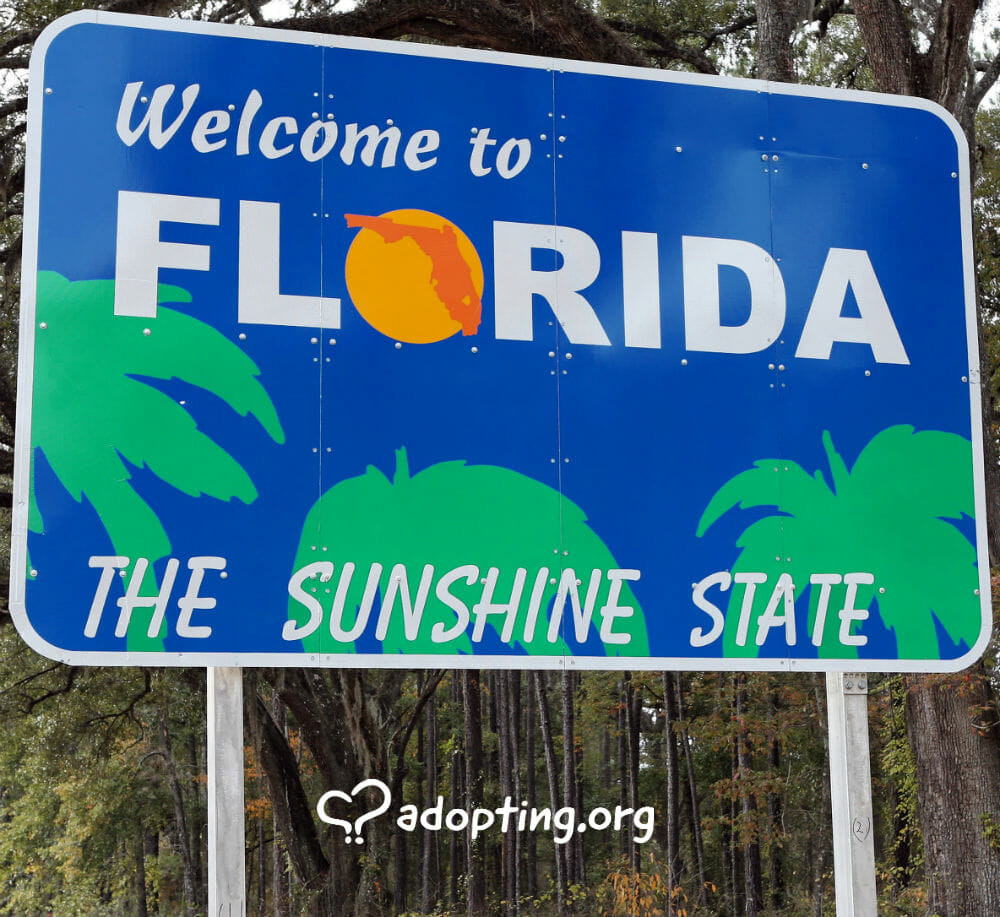Florida’s beautiful shores and many days of sunshine certainly make it a wonderful place to raise a family. If you are seeking an adoption in Florida, there is a lot of information you need to know to complete the process. Adoption in Florida is very similar to adoption in other states nationally. However, there are some laws specific to adoption in Florida that you will need to navigate. If you are a birth parent wanting to place your child for adoption in Florida, being knowledgeable on the process of adoption and also your rights in an adoption will help the process go more smoothly and assist you in making an informed decision about placement.
Where to Begin
For hopeful adoptive parents seeking adoption in Florida, the beginning stages of adoption can prove to be the most grueling. The state of Florida allows for adoptions to be completed through either an adoption agency or an adoption attorney. This applies to both domestic infant and international adoption. Adoption in Florida that occurs via foster care will go through a foster agency such as the Florida Department of Children and Families. Foster care adoption is little to no cost as these agencies and the state work together to place these children with eligible families by taking on the legal costs and processes.
The first step to take when pursuing an adoption in Florida is to find an adoption agency or adoption attorney to guide you through your adoption journey. You can find some great adoption agencies and attorneys in Florida by using the Adoption Provider Directory found at Adoption.com. This directory will give you more information on adoption providers that service the state of Florida and are licensed to aide you in your adoption. It is also helpful to ask around to others who have completed an adoption to see what agencies or attorneys with whom they have had a good experience. Joining groups such as the Florida Adoptive Parents community group or the I Love Adoption Facebook group can help you to find out more about the process, find reviews on providers, and also build a community to help you along your journey.
Becoming Eligible to Adopt
After you have selected an adoption agency or adoption attorney for your adoption in Florida, you must be deemed eligible to adopt. There are various general requirements that need to first be addressed. Anyone wanting to adopt in the state of Florida must undergo a fingerprint FBI background check. You are automatically disqualified from adopting if you have offenses such as domestic violence, sexual crimes, or crimes involving children or protected people groups such as the disabled or elderly.
While Florida does not note an age minimum or maximum for adoption, most agencies or attorneys set their own guidelines. These guidelines usually reflect people over the age of 18 and still healthy and young enough to support a child throughout their childhood. You must be at least 21 years of age to adopt from foster care in Florida. Single parents can adopt in the state of Florida. Same-sex couples can also adopt in the state of Florida, though this did not become possible until 2010 with new legislation passing federally.
[dfp_ads id=46]Prospective adoptive parents in Florida will need to undergo a home study in order to be eligible to adopt. This home study will include interviews of the prospective adoptive parents from a licensed professional. There will also be a physical check of the security, safety, and general living arrangements of the adoptive parents’ home. In addition to the fingerprint FBI background that will need to be completed, there will also be a check of the central abuse registry for past encounters with protective services.
Prospective adoptive parents will also be required to have at least five written references included in the home study report. These references must come from non-relatives. There will also be a requirement of education and/or training that is to be completed in formats deemed appropriate by their selected adoption professional. The result and participation in this training will be noted for the home study report. The home study process may be waived for relative placements and licensed foster parents.
Birth Parent Rights
Birth parents in any state have the right to stay informed and be represented in the adoption process unless their parental rights have already been involuntarily terminated. In regards to adoption in Florida, a birth mother is entitled to be paid reasonable living expenses and reasonable medical expenses related to her pregnancy. She can also be paid these expenses for the entirety of her pregnancy and up to six weeks after the birth of her child.
A birth mother cannot give her consent for an adoption until the child is 48 hours old or in the event she has been informed in writing that she can leave the hospital. Only one of these events need to occur for consent to be allowed. A birth father can give his consent anytime after the child has been born.
If a birth father is not listed or is unknown, there must be a check of the Florida Putative Father Registry to see if the child’s father has registered. The child’s father may register before the birth of the child and up until the termination of parental rights has occurred. Those who register on the Putative Father Registry will be subject to a DNA test.
Placement and Finalization
A child can be placed with his adoptive family right after his release from the hospital in infant domestic adoption in Florida. For foster care or other types of older child adoption, the placement may occur once the adoptive family has been deemed eligible to adopt. The child placing agency must visit the child’s new home at least three times after placement, with the first placement occurring no more than a week after placement. There have to be at least three visits and a report submitted to the courts before finalization of the adoption. The adoption finalization can occur after the child has been in his or her new placement for at least 90 days, though the length from placement to finalization can vary greatly.
Visit Adoption.com’s




